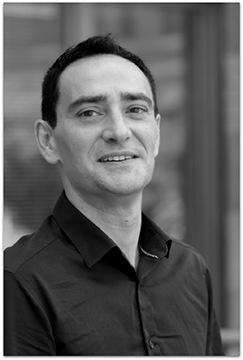Plénières
 |
Prof. Denis Jamet teaches English and French linguistics at Jean Moulin University (Lyon 3), where he also acts as Associate Dean of the Faculty of Languages and Linguistics for International Affairs, Continuing Education and French competitive exams to become high school teachers. He is also the director of the Linguistics Research Center, and acted as Dean of the Faculty of Languages and Linguistics between 2011 and 2016. His research interests focus on lexicology (metaphor, euphemism and taboo language, the language of emotions, etc.), morphosyntax (the lexical-grammatical interface) and translation studies.
|
|
Title: “Euphemisms for physical and mental illnesses in French and English”
Abstract:
Euphemisms are embedded so deeply in our language that few of us, even those who pride themselves on being plain speakers, never get through a day without using them. [Rawson 1981: 1] According to Allan & Burridge [1991: 11], “[a] euphemism is used as an alternative to a dispreferred expression, in order to avoid possible loss of face: either one’s own face or, through giving offence, that of the audience, or some third party.” The word “alternative” seems to imply that there is always a choice for speakers, according to the situation of utterance, the interlocutor(s), the register, etc. Yet, in some cases, there does not seem to be much choice, and some euphemisms are completely lexicalized as they have imposed themselves as the only acceptable ways to refer to a given referent or a given notion. This may be the case for politically-correct terms for instance, or for euphemisms referring to notions that are deemed too shocking or painful to be directly mentioned. The motivations underlying the lexical creation of euphemisms are varied, and depend on various criteria that need to be taken into account. Allan & Burridge [2006: 96] made this clear when they write that “[e]uphemism is driven by many different things: euphemistic expressions can of course be motivated by a desire not to offend, but they are also motivated by the wish to display in-group identity markers, the wish to upgrade whatever they denote, and even the display of wit.” This presentation therefore aims to discuss the aspects of word-formation process in the euphemistic lexicon of physical and mental illnesses in English and in French, by resorting to a comparative analysis.
|
|

|
Dr. Lydie Moudileno is Professor of French and American Studies and Ethnicity in the Department of French & Italian at the University of Southern California. Her research and publications focus on contemporary fiction with a connection to the (former) French colonies, including the Caribbean, Sub-Saharan Africa and hexagonal France. Her books include L’écrivain antillais au miroir de sa littérature (1997), Littératures africaines 1980-1990 (2003), Parades postcoloniales (2007) and as editor, L’Exposition postcoloniale, a collection of essays on representations of the African body (2006). She is the author of numerous essays on Francophone studies as a discipline and on individual authors such as Edouard Glissant, Maryse Condé, Le Clézio and Marie NDiaye.
|
|
Title:
“The Multicultural Comedy: Race, Humor, and the Republic”
Abstract:
This lecture will examine the use of racial and “racialized” humor in French popular culture from the 1980s to the present. The discussion will be placed in the context of French republican claims to colorblindness and contemporary debates on multiculturalism. In the process, we hope to demonstrate the tensions and paradoxes involved in any discussion of race and ethnicity in a French context.
|
|

